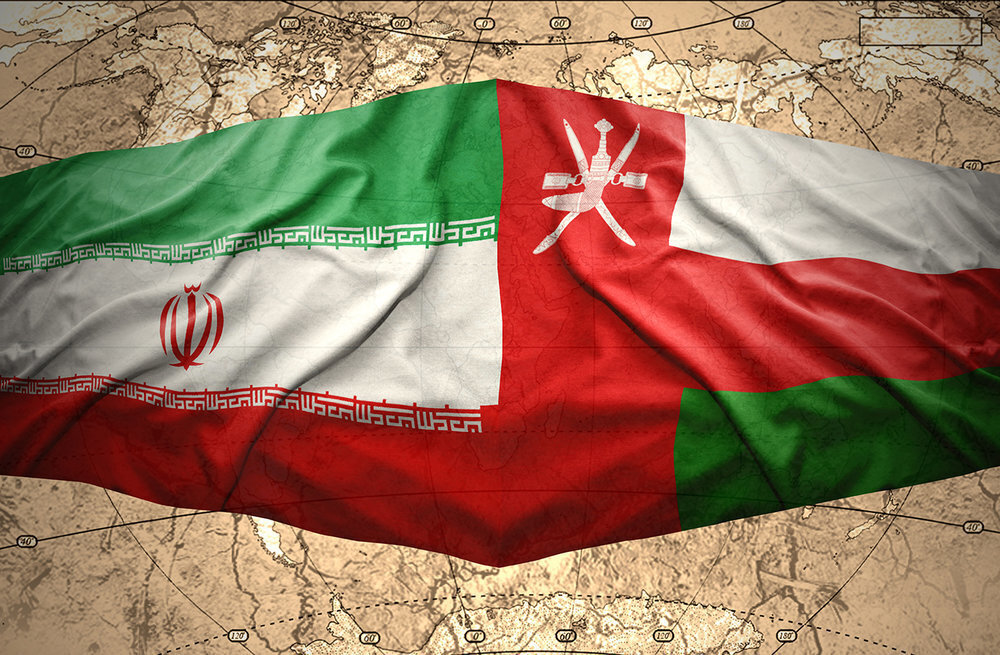
ICCIMA to hold Iran-Oman trade opportunities webinar on Tuesday

The online event will be attended by the members of Iran-Oman Joint Chamber of Commerce, some representatives of provincial chambers of commerce, as well as the chairmen of different unions and associations.
The meeting will review opportunities, challenges and obstacles related to private sector cooperation with Oman and reports will be released on the latest developments in the region, bilateral cooperation and the prospects for the development of relations and cooperation in addition to the existing opportunities between the two countries.
Problems and proposed solutions to facilitate the entry of Iranian companies into the Omani market will also be discussed by representatives of provincial chambers, as well as the chairmen and representatives of related committees and unions.
During a meeting between the Governor of the Central Bank of Iran (CBI) and Oman’s Foreign Affairs Minister Sayyid Badr bin Hamad, in Muscat in late January, the two sides emphasized the necessity of expanding bilateral economic and banking relations.
Addressing the meeting, the Omani minister pointed to the importance of Iran's role and position in the region, and considered the expansion of trade and economic relations between the two countries important.
It should be noted that before this and in the meeting of the CBI governor with the commerce and industry minister of Oman in Tehran last year, strategies for continuous development and facilitation of banking and trade relations between Iran and Oman were discussed.
Despite the U.S. re-imposition of sanctions against Iran, Oman is getting closer to the Islamic Republic both politically and economically. There is also the same approach adopted by Iran, as Iranian companies now prefer to conduct trade with Oman rather than the United Arab Emirates (UAE), given that the UAE is highly complying with the sanctions.
Iran is somehow replacing some of its previous strategic trade partners such as UAE with Oman, considering the Sultanate as an economic-trade hub.
Over the past two years, there have been many meetings and negotiations between trade and economic officials from the state-run and private sectors of the two sides with the aim of strengthening and expanding bilateral trade ties.
During the 18th meeting of the Iran-Oman Joint Economic Committee in Tehran, Omani minister of commerce and industry had said that his country was trying to boost its trade and economic ties with Iran, stressing that this goal could be achieved through more cooperation between the two sides’ private sectors.
Ali bin Masoud al Sunaidy also said, “We will make the most efforts to provide incentives for joint investment and also promote bilateral trade cooperation between the two countries.”
Stressing that a very proper condition is available for invigorating the bilateral trade, the Omani official said the two sides can also take the advantage of bartering to expand their trade ties.
Addressing the same meeting, Iran’s Former Industry, Mining and Trade Minister Reza Rahmani said while there are potential and capabilities for boosting the trade turnover between Iran and Oman to $5 billion, the figure is currently $1 billion.
The International North South Transit Corridor (INSTC) can help the two countries elevate their bilateral trade to this level, the minister noted.
Meanwhile, Iran-Oman Joint Chamber of Commerce and Iran Mine House (IMH) signed a memorandum of understanding on cooperation for the expansion of the Iranian private sector’s presence in Oman in early August 2020.


Trump weighs using $2 billion in CHIPS Act funding for critical minerals

Codelco cuts 2025 copper forecast after El Teniente mine collapse

Electra converts debt, launches $30M raise to jumpstart stalled cobalt refinery

Barrick’s Reko Diq in line for $410M ADB backing

Abcourt readies Sleeping Giant mill to pour first gold since 2014

Nevada army depot to serve as base for first US strategic minerals stockpile

SQM boosts lithium supply plans as prices flick higher

Viridis unveils 200Mt initial reserve for Brazil rare earth project

Tailings could meet much of US critical mineral demand – study

Kyrgyzstan kicks off underground gold mining at Kumtor

Kyrgyzstan kicks off underground gold mining at Kumtor

KoBold Metals granted lithium exploration rights in Congo

Freeport Indonesia to wrap up Gresik plant repairs by early September

Energy Fuels soars on Vulcan Elements partnership

Northern Dynasty sticks to proposal in battle to lift Pebble mine veto

Giustra-backed mining firm teams up with informal miners in Colombia

Critical Metals signs agreement to supply rare earth to US government-funded facility

China extends rare earth controls to imported material

Galan Lithium proceeds with $13M financing for Argentina project

Kyrgyzstan kicks off underground gold mining at Kumtor

Freeport Indonesia to wrap up Gresik plant repairs by early September

Energy Fuels soars on Vulcan Elements partnership

Northern Dynasty sticks to proposal in battle to lift Pebble mine veto

Giustra-backed mining firm teams up with informal miners in Colombia

Critical Metals signs agreement to supply rare earth to US government-funded facility

China extends rare earth controls to imported material

Galan Lithium proceeds with $13M financing for Argentina project

Silver price touches $39 as market weighs rate cut outlook

















